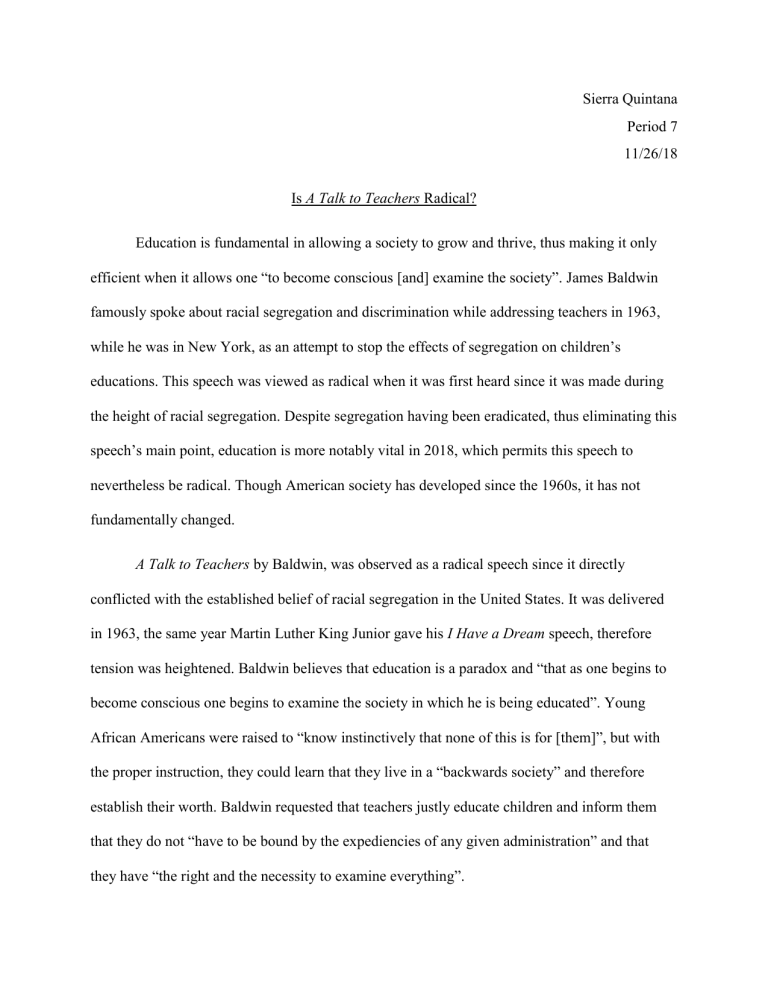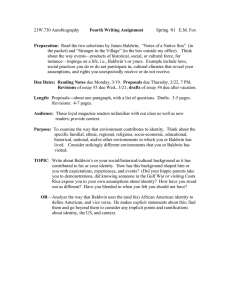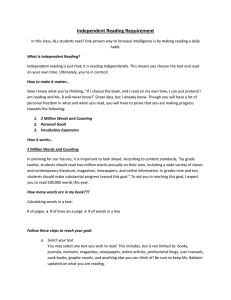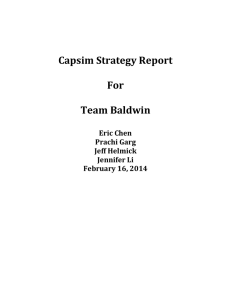Baldwin's 'A Talk to Teachers': Is it Still Radical?
advertisement

Sierra Quintana Period 7 11/26/18 Is A Talk to Teachers Radical? Education is fundamental in allowing a society to grow and thrive, thus making it only efficient when it allows one “to become conscious [and] examine the society”. James Baldwin famously spoke about racial segregation and discrimination while addressing teachers in 1963, while he was in New York, as an attempt to stop the effects of segregation on children’s educations. This speech was viewed as radical when it was first heard since it was made during the height of racial segregation. Despite segregation having been eradicated, thus eliminating this speech’s main point, education is more notably vital in 2018, which permits this speech to nevertheless be radical. Though American society has developed since the 1960s, it has not fundamentally changed. A Talk to Teachers by Baldwin, was observed as a radical speech since it directly conflicted with the established belief of racial segregation in the United States. It was delivered in 1963, the same year Martin Luther King Junior gave his I Have a Dream speech, therefore tension was heightened. Baldwin believes that education is a paradox and “that as one begins to become conscious one begins to examine the society in which he is being educated”. Young African Americans were raised to “know instinctively that none of this is for [them]”, but with the proper instruction, they could learn that they live in a “backwards society” and therefore establish their worth. Baldwin requested that teachers justly educate children and inform them that they do not “have to be bound by the expediencies of any given administration” and that they have “the right and the necessity to examine everything”. The main purpose of this speech is to educate young African Americans of their rights, but in 2018, every individual of each race has the opportunity to the same education. This speech, however, has remained radical in both time periods since it calls for complete reform by revolutionary manners. Baldwin understood that America was in a “revolutionary situation, no matter how unpopular that word [had] become” and some could argue that we are again in the same situation. Baldwin wrote of a major crisis which claimed that “[if he is] not what [he has] been told [he is], then [that] means that you’re not what you thought you were” which is still relevant in our education process. Baldwin began his speech by asserting “that we are living through a very dangerous time” which applies to both 1963 and 2018. American society has been reformed since the 1960s, but this reform has not allowed America to fundamentally change. Many monumental transformations have occurred, including: the eradication of segregation, technological advancements, the feminist movement, and the election of the first African American president. Though these changes have affected the views of many Americans, many still have the same core values and beliefs. These include: freedom of religion, freedom of speech, freedom of the press, and the right to bear arms. These are the fundamental beliefs established by Americans, which remain intact. Radicalism is the acceptance that society needs to be changed, and that these changes are only possible though revolutionary means. Baldwin believed that the way education was approached needed to be rehabilitated to allow everyone to learn the full truth. His speech was viewed as radical not only in 1963, but today in 2018. America has undergone many changes since the 1960s but holds its fundamental beliefs close. Therefore, the fundamental aspects of America have not changed, and Baldwin may have proposed radical ideas, but his changes were necessary.


